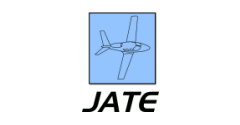Abstract
Aviation as an industry requires a high degree of precision at all times. Large amounts of stress have been known to decrease performance to undesirable levels. While stress reactions and the coping skills used after encountering stressful situations differ from person to person, generalities can be made by comparing differences between groups. A large number of pilot applicants receive initial training within a university flight program each year. In order to better understand the perceived stress level and the coping skills used by these students, the current research project administered a perceived stress test and a coping skills inventory to two groups of collegiate pilots: a first-year group (n = 50) and a junior/senior group (n = 32). Differences were found between the stress levels and coping skills used by this sample population.
High risk industries such as aviation require consistently high levels of performance from employees, regardless of environmental pressures. This is especially the case in flight training, where flight students must adapt to the risks and hazards of the flight environment while learning a new, complex skill set. This can easily leave aviation students feeling overwhelmed. While individual differences play a large role in determining how students respond when placed in stressful situations, generalities can be made using larger groups of students. The current research study measured perceived stress levels and coping skills utilized by two groups of collegiate aviation students drawn from a large Midwestern university.
Recommended Citation
Kirschner, Jennifer; Young, John; and Fanjoy, Richard
(2014)
"Stress and Coping as a Function of Experience Level in Collegiate Flight Students,"
Journal of Aviation Technology and Engineering:
Vol. 3:
Iss.
2, Article 3.
Available at: https://doi.org/10.7771/2159-6670.1092
Included in
Industrial and Organizational Psychology Commons, Personality and Social Contexts Commons, Transportation Commons


